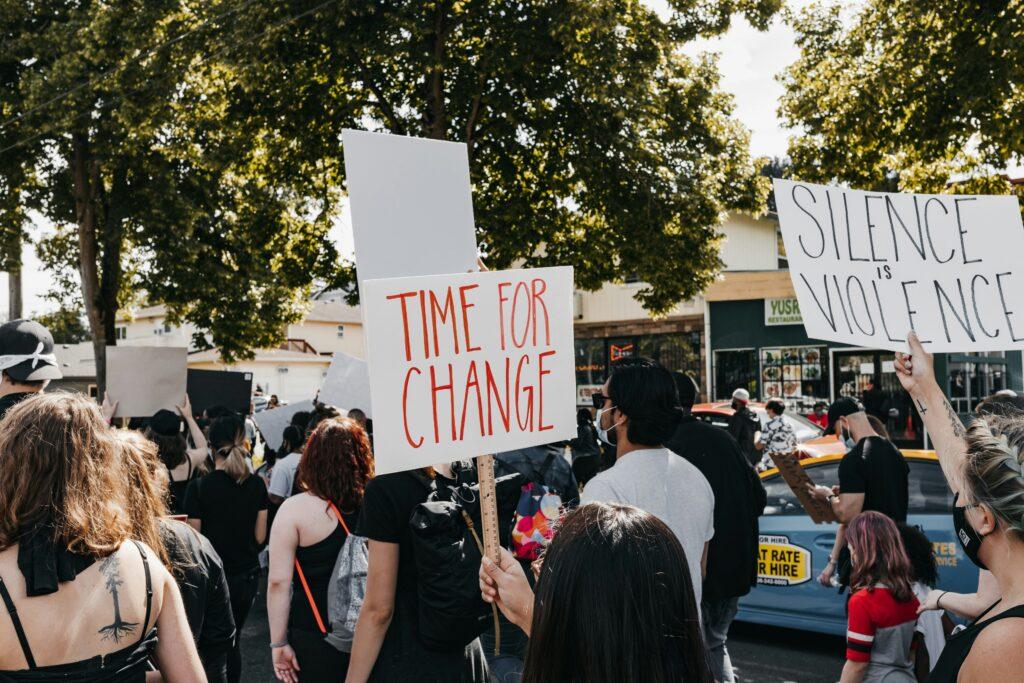
Photo by Duncan Shaffer on Unsplash
For a long time in my life, I found protests pointless. I didn’t really get the point of going out on the street to complain about things. It didn’t really seem to do a whole lot.
But my view has shifted over the last few years. I’ve experienced more political events that have struck me personally. Sometimes protests are simply needed to release a built up level of frustration. Other times, it is important to demonstrate that we are not quietly accepting something that is being imposed upon us.
I’ve built a growing admiration for those who lead protests. It’s not a simple thing to galvanise people into action. Whilst I may not be a personal fan of the oft harsher messaging, I’ve also come to appreciate that my preference for technocratic change is ineffective if it is not paired with radical action to shift societal opinion.
Despite this, I find many protests are not particularly effective. In fact, sometimes they may actually do more harm than good.
Where I see many protests fail is how they end up actually putting off people that could potentially support the cause. For example, I tread activist spaces with a great level of caution: put simply, these spaces can become sycophantic. Your value as a person is directly correlated to how much you agree with the leader. If you are not fully in alignment with the beliefs of the group, you are not One Of Us.
As someone who rarely fits into cliques, it makes things pretty challenging. I’ve become increasingly critical of the climate movement that I see, particularly around me in Brussels. The activist spaces are often dominated by white cis women. Despite preaching tolerance, I experience more racism in these spaces than I do in others. I’ve now realised I’m not actually welcome in these spaces, so I’ve stopped engaging.
Every now and then, I’ll hear about how they want to attract more men and racialised minorities to these groups. But I’ve come to realise that I also can’t help these people. What is actually required is too dramatic a shift in the way things are done. I’ve actually experienced people lashing out at me because they did not like what I said.
I recently saw a post on LinkedIn from a woman, who was wondering why many men do not engage with issues around women’s rights. I replied explaining that it’s such a minefield where men are often worried that they’ll get told off, that they find that they are better off not engaging. I had a lot of men agree with this comment, as well as the woman who was the original poster. But I also had a woman reply to me complaining about my perspective, with an angry tone, something along the lines of ‘goodness grief, men need to pull their finger out’.
Is her response justified? Sure, it can be frustrating to see a lack of reaction. But does it help the cause? Totally not. I literally responded to a question from a woman around why men do not engage on posts. I then got told off for my opinion. Next time, perhaps I shouldn’t bother engaging.
But more practically, I feel that protests often become the go-to response to every situation, simply because people do not want to reflect on their own behaviours, or do some proper planning to agree upon a strategy. When you dig under the surface, activist spaces oft turn out to be filled with the same ego-driven and cliquey behaviour that are supposedly being fought against.
I’ve been reading Moral Ambition by Rutger Bregman. The idea behind the book is to focus on tackling the world’s biggest problems, focusing more on societal benefit rather than personal gain.
We’ve heard the story about Rosa Parks and how she refused to get up from her seat for a white passenger. What we know less about was how the whole movement had been orchestrated for years. Hard work of activism and planning meant that when this happened, there was a concerted effort to make people aware what was going on. 35000 leaflets were distributed in super-quick time. 20 women from the Women’s Political Council went out to advocate the cause. The continuous advocacy meant that Male church leaders (including Martin Luther King Jr) ended up supporting the cause, despite initially being reluctant to get involved.
This worked because people were aligned to the mission. There was broader agreement on what needed to happen, and there was commitment towards it. There was also more of the key organisational work done by people like Jo Ann Robinson. A person who did not do tihs because they felt they needed their names in the history books, but instead were more focussed upon making a real world impact.
Social movements fail because they lack the level of structure and planning to create an effective movement. There is a lack of common vision of what people really want to see happen, and too much cliquey behaviour which ends up putting people off.
Change these things, and you’ll make an impact.